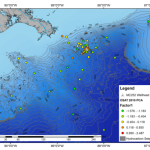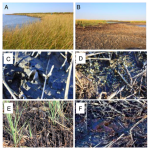I’ve officially arrived back in New Hampshire (freezing my tanned little arms off, btw) after my marathon sampling trip in the Gulf, and I’ve been trying to catch up on all the spill-related news I missed. More pictures and reports from my trip will follow soon (promise!), but right now I need to rant.
You see, I’m anxiously awaiting to hear the fate of the $500 million pot of research money that BP has promised to scientists.
In late May, BP announced that it planned to give $500 million over 10 years for independent scientists to study the effects of the Deepwater Horizon disaster on coastal areas and the ocean. The company said at the time that grants would be controlled by an independent advisory board of scientists it would appoint.
The grant-making process came to a halt a month later when the White House asked BP to work with the gulf governors to design the environmental research initiative…It would have an expanded advisory board of 20, with half the members appointed by the governors, according to people involved in the talks. BP and the alliance are also expected to sign a memorandum of understanding that scientific institutions in the five gulf states would get preference, said Bill Walker, executive director of the Mississippi Department of Marine Resources and the state’s representative to the alliance.
My heart is dropping as I’m following this news. Don’t get me wrong, I think that scientific institutions in the Gulf States should most certainly receive a sizable chunk of money, given that they have direct access to the coastline, a plethora of Gulf specialists, and will suffer post-spill impacts for years to come.
However, I believe it is highly dangerous to move away from a very stringent, peer-review process (with highly qualified scientists rigorously choosing the best projects with the best expertise) to a lumbering advisory board where each state will be fighting for the biggest share (and thereby campaigning for future votes).
Oil Spill experts don’t necessarily live in the Gulf, either—Scripps, anyone? Wood’s Hole?! To refuse funding for these leaders in the field would not be good science.
To give another example regarding my own high-throughput, metagenetics research in the Gulf: 454 sequencing is still pretty new technology in the grand scheme of things, and you need to have a strong bioinformatics lab (which we have at UNH) in order to understand the huge datasets and draw meaningful (and correct!) biological inferences. Not many meiofauna specialists have embraced 454 yet, but we are hoping to start a trend. However, we need funding to keep testing, refining, and progressing these high-throughput methods.
The Deepwater Horizon disaster has ironically provided a prime opportunity for novel, innovative research. I just hope the science won’t be marred by politics.






Thanks for keeping up the good fight. The politicization of science is deplorable, but seemingly here to stay.
At the same time, couldn’t this be an opportunity to jump start marine science in the Gulf? In ten years there could be a Gulf equivalent of Woods Hole.
I mean, it won’t actually work out that way, but what’s life without dreams, no?